January 11, 2021
Walk into a dressing room at half-time and you’ll find players sat next to each other, sweaty and breathing hard. This is precisely the type of environment a virus thrives in.
In this age of empty stadiums, the emphasis is on keeping players and coaching staff safe from the virus that causes COVID-19. Not surprisingly, regular testing, masks, social distancing and hand sanitation have become the norm.
Now, some of the most forward-thinking football clubs are turning to Ultraviolet-C (UV-C) technology to provide an extra layer of protection in the fight against the virus. UV-C lighting is proving vital in the ongoing battle to keep clubs functioning and fixtures playable, helping to protect staff and players during these uncertain times.
UV-C light at the wavelength of 254nm is proven to be a highly effective disinfectant.1 In fact, it is so effective that tests done on a Signify UV-C light source at Boston University, revealed that after just 9 seconds the virus causing COVID-19 was found to be below detectable levels.2
Times for inactivating the virus, by breaking down its DNA/RNA, vary depending on the strength of the light source and its proximity to the contaminated surface. The power of UV-C is such that people or animals should not be exposed to the light source as it could harm their skin and eyes.
So how could a football stadium make use of the technology?
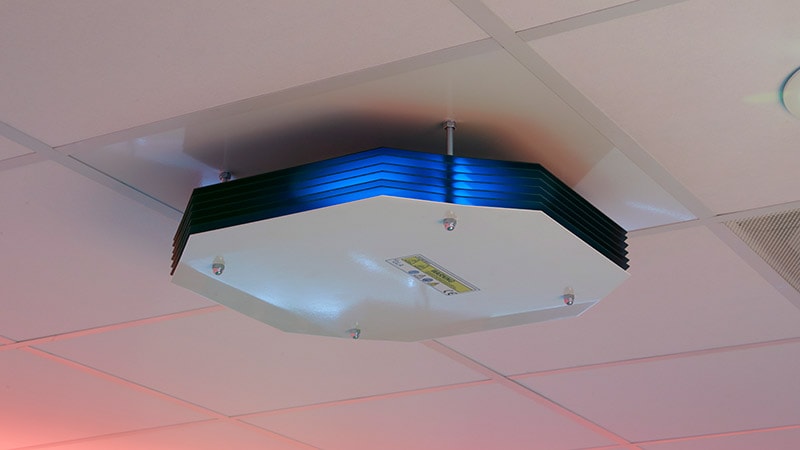
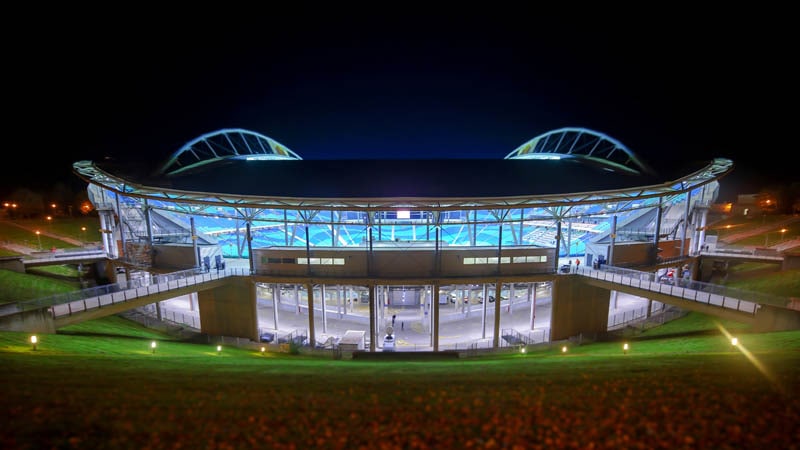
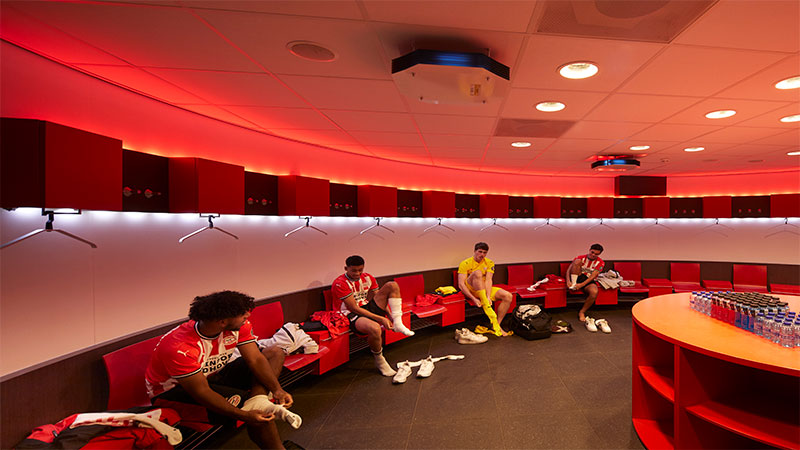
The same kind of luminaires can be found in the dressing rooms of the Philips Stadion, home to the 24-times winner of the Dutch Eredivisie, PSV Eindhoven. Dressing rooms in its training facilities and medical facility will also boast the groundbreaking technology.
When dressing rooms and other indoor parts of a stadium are empty of people, stadium owners can bring in UV-C trolleys and activate them remotely to disinfect surfaces. Elsewhere, UV-C chambers, which look and operate like a microwave oven, could be used to disinfect objects such as keys and walkie-talkies.
Even after the COVID-19 vaccine has been rolled out there is a strong case for UV-C lighting. This is because UV-C is proven to be effective against all viruses, bacteria and mold spores that have been tested in scientific studies.
“All viruses tested to date, including seasonal flu, can be inactivated by UV-C light,” explained Emile van Dijk, who heads up Signify’s UV-C team. “Given the price tag of modern football players, it makes sense to do everything possible to help protect them from illness.”
Recently, Reimagine Football presented an award to Signify for its efforts with UV-C lighting. Its upper air luminaires were recognized as one of the best innovative ideas for stadium operations.
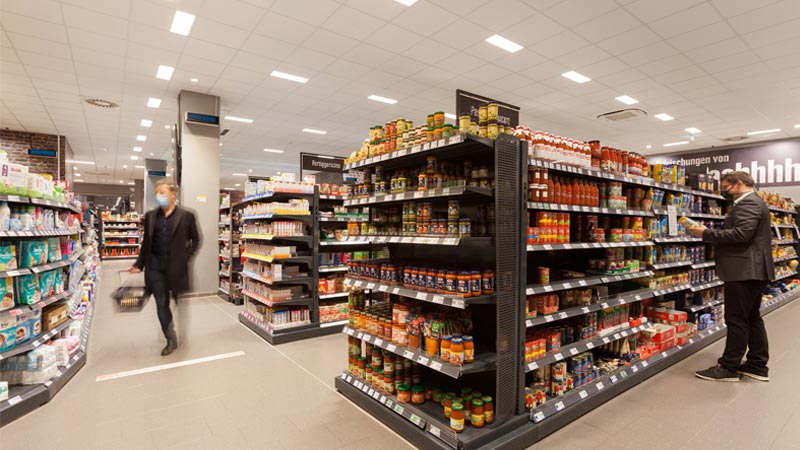
UV-C disinfection upper air systems are being used in a number of high contact environments including supermarkets and offices. Edeka, the German supermarket chain, is piloting the technology in Hamburg. Also, last month, Honeywell and Signify inked a strategic alliance which will see UV-C disinfection upper air systems offered as part of Honeywell’s Healthy Buildings solutions.
If the pandemic has taught us anything, it is the need to take measures to keep people safe. From soccer players to shoppers, UV-C can help do this.
1Adel Haji Malayeri et al, Fluence (UV Dose) Required to Achieve Incremental Log Inactivation of Bacteria, Protozoa, Viruses and Algae, 2006_ _
2In laboratory testing, Signify’s UV-C light sources reduced SARS-CoV-2 virus infectivity on a surface to below detectable levels in as few as 9 seconds.
Nadia Storm et al, Rapid and complete inactivation of SARS-CoV-2 by ultraviolet-C irradiation, 2020. Subject to peer review and available only as a pre-print at https://www.researchsquare.com/article/rs-65742/v2. The UV-C irradiance used in this study was 0.849 mW/cm2.
3James J. McDevit et al, Aerosol Susceptbility of Influenza Virus to UV-C Light, 2012.
For editorial enquiries:
Signify Global Integrated Communications
Neil Pattie
Tel: + 31 6 15 08 48 17
Email: neil.pattie@signify.com
Signify (Euronext: LIGHT) is the world leader in lighting for professionals, consumers and the Internet of Things. Our Philips products, Interact systems and data-enabled services, deliver business value and transform life in homes, buildings and public spaces. In 2023, we had sales of EUR 6.7 billion, approximately 32,000 employees and a presence in over 70 countries. We unlock the extraordinary potential of light for brighter lives and a better world. We have been in the Dow Jones Sustainability World Index since our IPO for seven consecutive years and have achieved the EcoVadis Platinum rating for four consecutive years, placing Signify in the top one percent of companies assessed. News from Signify can be found in the Newsroom, on X, LinkedIn and Instagram. Information for investors is located on the Investor Relations page.
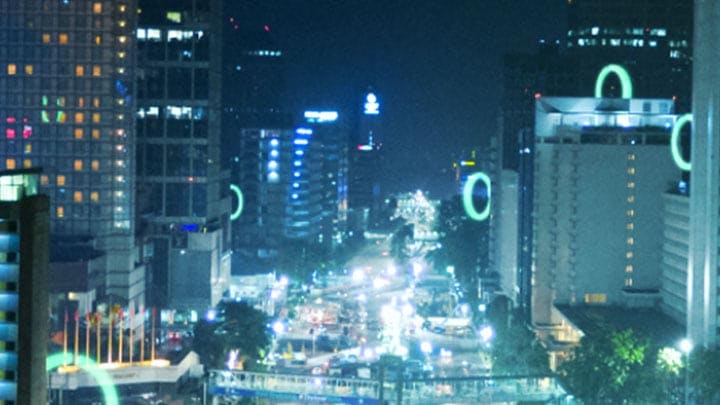
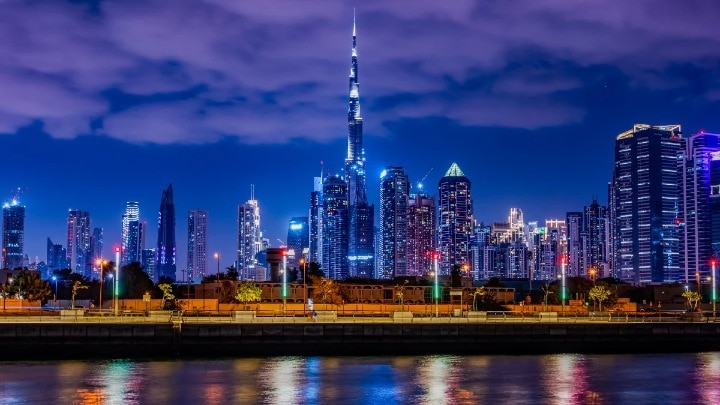
December 17, 2024
Transforming Dubai’s iconic buildings with connected lighting from Signify